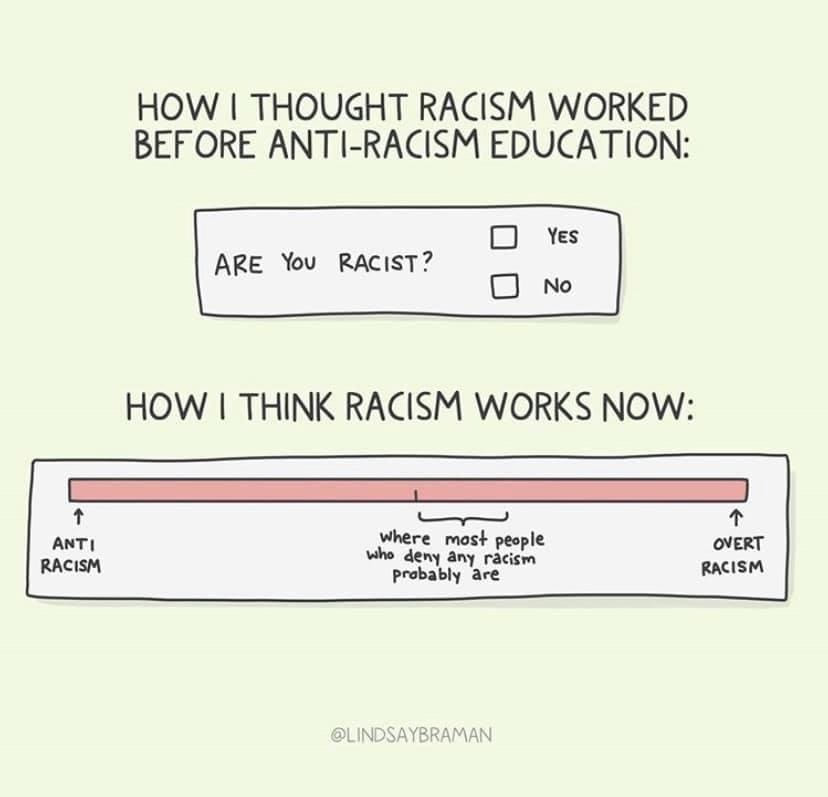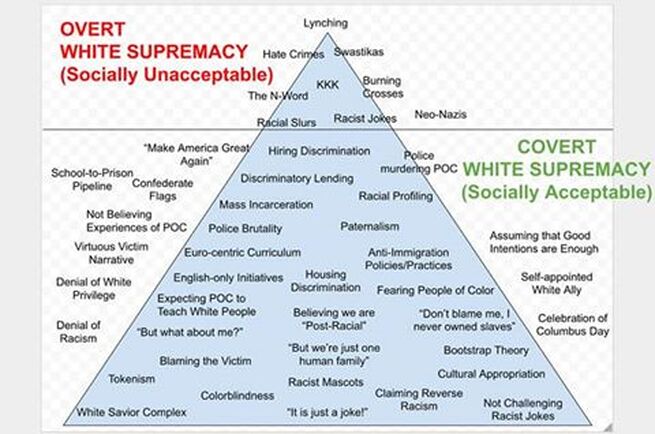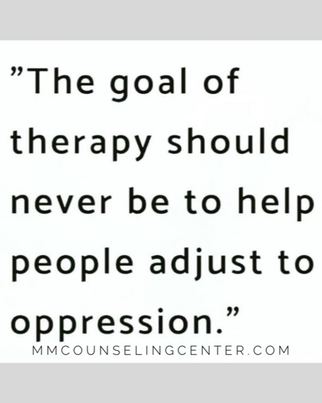Have you heard about "anti-racism" recently?In the last few months we have seen a centering of the ways systemic racism affects Black and Latinx communities in a different way. Especially when it comes to higher proportion of deaths by COIVD, police brutality, healthy and economic inequities. We have heard and seen black grief and rage and may not understand the trans-generational and cumulative impact of 400 hundred years of discrimination because we likely grew up in the time of color blindness. You may have only recently heard the phrase "anti-racism". Making Your Therapy Practice More Anti-RacistYou likely have been wondering how you can be more of an anti-racist practice. Of course, you feel for the BIPOC (black, indigenous, and people of color) communities. You support the premise of Black Lives Matter [too] and care about diversity, equity and inclusion in your practice. You have often thought I am not a racist, but have begun thinking are you anti-racist? What does it actually mean to be anti-racist? It is taking an active stance against racism. To be “not a racist” is a stance of neutrality. It is often being indifferent or minimizing the legacy of white supremacy in this country that supports the white supremacy system continuing. Check out my other blog post about white supremacy and history of racist policies. The reality is we are all indoctrinated and conditioned into white supremacy [the system that creates white privilege]. We likely learned a Eurocentric curriculum in school. We might have grown up or currently live in segregated areas. We went to graduate school and learned therapy models that centered white, cis, male, heterosexual, able bodied, neurotypical, Christian, upper middle class theories of understanding human behavior, culture and therapy. Unlearning Racism to Embrace Racial Justice and Anti-RacismWe have an opportunity to unlearn racist ideas but first we must deconstruct our current paradigm that centers whiteness without naming whiteness. We have to lift the veil and make visible what has been invisible. There are a lot of different anti-racist or diversity, equity and inclusion options out there. Why is mine different? I really embrace a paradigm shift for everyone (no matter what your race is or how you have been an ally in the past). I bring a mindfulness lens to all trainings and conversations along with a clinical background. As a black licensed clinical psychologist who is also a yoga teacher and somatically trained, married to a cis white man, raising bi-racial children who has worked in community mental health, been a clinical and administrative director at partial hospital, intensive outpatient and inpatient programs, worked in college counseling center and owns a group practice I have seen the ways anti-racism is rarely embraced as a value in a way that transforms a culture. white supremacy and racism lives in our bodiesWe bring those bodies into our therapy rooms and our bodies talk to each other. When we talk about racism we have to do it not only from a cognitive place but also a fully embodied stance so true transformation can occur. We have to understand how implicit bias takes root unconsciously and how our bodies react first and then the mind follows. We have to learn to settle our bodies (engage our ventral vagal nerve) as Resmaa Menakem talks about. Learning about different cultures (cultural competence) is great and yet not enough if our paradigm doesn’t shift and reduce our implicit bias. We have to embrace cultural humility, a recognition that we often don't know and will always be learning. How do we move away from centering whiteness as the norm?How do we create truly inclusive spaces- spaces that welcome the intersectionality of identities, that affirm the inherent worth and dignity of all beings. How do you start to critically analyze from an anti-racist lens and do a power analysis? How do you recognize the barriers to having productive, embodied discussions about race? Who do your websites and marketing materials speak to? What is not explicitly stated? Where is your practice located and who can easily access your services? What is your payor mix? How do you hire and retain BIPOC clinicians? How do you partner and become an ally for BIOPC communities from a genuine place rather than a performative place? How do you hold space for black rage and grief as well as the intergenerational trauma of racism? How do you start to see the model minority stereotype as anti-blackness culture? How are you unintentionally committing microaggressions and how do you repair that? How do you build shame resiliency and skills to sit in discomfort? There are certain values related to white supremacy culture.
When we start to intersect it with other identities we uncover sexism, heterosexism, transphobia, xenophobia, ableism, and religious intolerance. An Anti-Racism Assessment for OrganizationsI have adapted this anti-racism assessment grid from National Juvenile Justice Network which looks at the culture of different organizations. There are four main categories:
Embrace the Best of Yourself, Reject Shame and Become More Anti-RacistWhat if you were to embrace "I want to get it right rather than I want to be right" as Brene Brown says when she talks about moving away from unhealthy shame to accountability? How do we step into vulnerability to address your blindspots, the areas that you were purposely never thought because white supremacy system cannot persist if everyone is awake and aware about the anti-blackness culture that is the foundation of the United States. Shame is not a social justice tool but rather a symptom of white supremacy. Shame interferes with our ability to feel empathy, build bridges or invite people into the conversation. How can you create more healing in your communities for white, black, indigenous, people of color, and multiracial people where there is less stigma about mental health issues and therapy is more accessible for everyone in your community? Are you ready to get started with an anti-racism consultant?Check out my anti-racism resource page to start this process. Schedule a training for your staff. Join one of my upcoming trainings. Purchase an online training video. Learn more about me here.
Comments are closed.
|
Details
AuthorNathalie Edmond is a licensed clinical psychologist specializing in the treatment of trauma from a mindfulness based and somatic approach. She is also a yoga teacher and anti-racism educator. She lives with her family in New Jersey. Archives
October 2023
Categories
All
|



 RSS Feed
RSS Feed